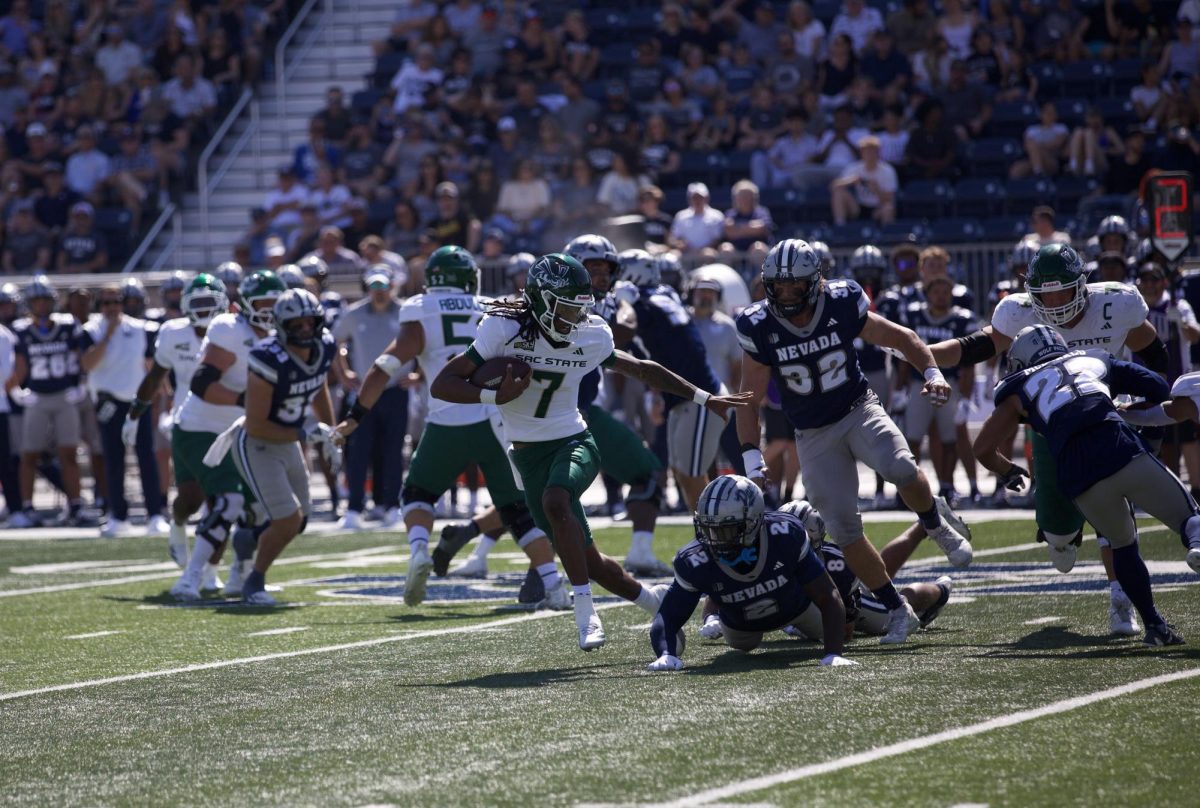New foreign film teaches German, Berlin Wall history
April 21, 2004
Meghan Casey
State Hornet
What measures love? To what ends will a family go to ensurehappiness and unity in a selfish climate?
When Alex’s staunchly communist mother falls into a comain October 1989, the event marks a change in not only the lives ofAlex (played by an adorable Daniel Bruhl) and his family, but inthe lives of all East Germans. Eight months later, the Berlin wallhas fallen and Alex’s mother wakes with a weak heart. Toldany shock could kill her, Alex undertakes the task of recreating anow-obsolete world of communist food labels and bland clothing inorder to appease her communist sensibilities.
As East Germany grows more and more capitalistic, Alex becomesmore and more involved in his loving deception of his mother,involving his family and even neighbors and local children in thegame.
Director Wolfgang Becker uses the backdrop of reunification fora highly personal tale of love and struggle, of family andpolitics.
The eagerness of Alex to dupe his mother is underscored by theeagerness of East Germans around him to join the Western world.Like the highly politicized fall of the wall, which leads topersonal struggles of East Germans to reinvent their lives toinclude consumerism and fast food, Alex’s ploy, at firstwhimsically protective, becomes something of an idealistic game forhim.
One comes to wonder whether Alex is trying to save hismother’s life, or if he is trying to regain a structure andfamiliarity that reunification has thrown to the curb. Thecommunalism of communism is echoed in his recruiting of family andfriends for the single cause of his mother’s well-being, arejection of the individualized world invading Berlin.
Funny and touching, “Goodbye Lenin” entertains whileit quietly teaches. The small details Alex tries to recapture showWestern audiences particulars of a foreign time and place, nowpassed. Becker makes us question how far is too far, how personaldiscomfort and deception can be acceptable in the name of love.
The film’s intimate themes are complemented by colorfuland fanciful visuals. Becker contrasts communist Berlin withcapitalist Berlin with stunning force. Most moving, perhaps, is ascene in which a helicopter carries a giant statue of VladimirLenin over a busy highway, and Lenin’s pointing finger seemsto be telling us about idealism and hope, of unity and power, as ithis likeness is taken to what we can only assume will be thescrapyard.
A fun romp through history and family, “GoodbyeLenin” is deceptively simple and attractively framed. Eventhose who usually avoid foreign movies (the whole film is inGerman, with English subtitles) will be carried away by its lighthumor and touching moments.
“Goodbye Lenin” is now playing at the Tower Theater,on the corner of Broadway and Land Park Drive.






























































































































